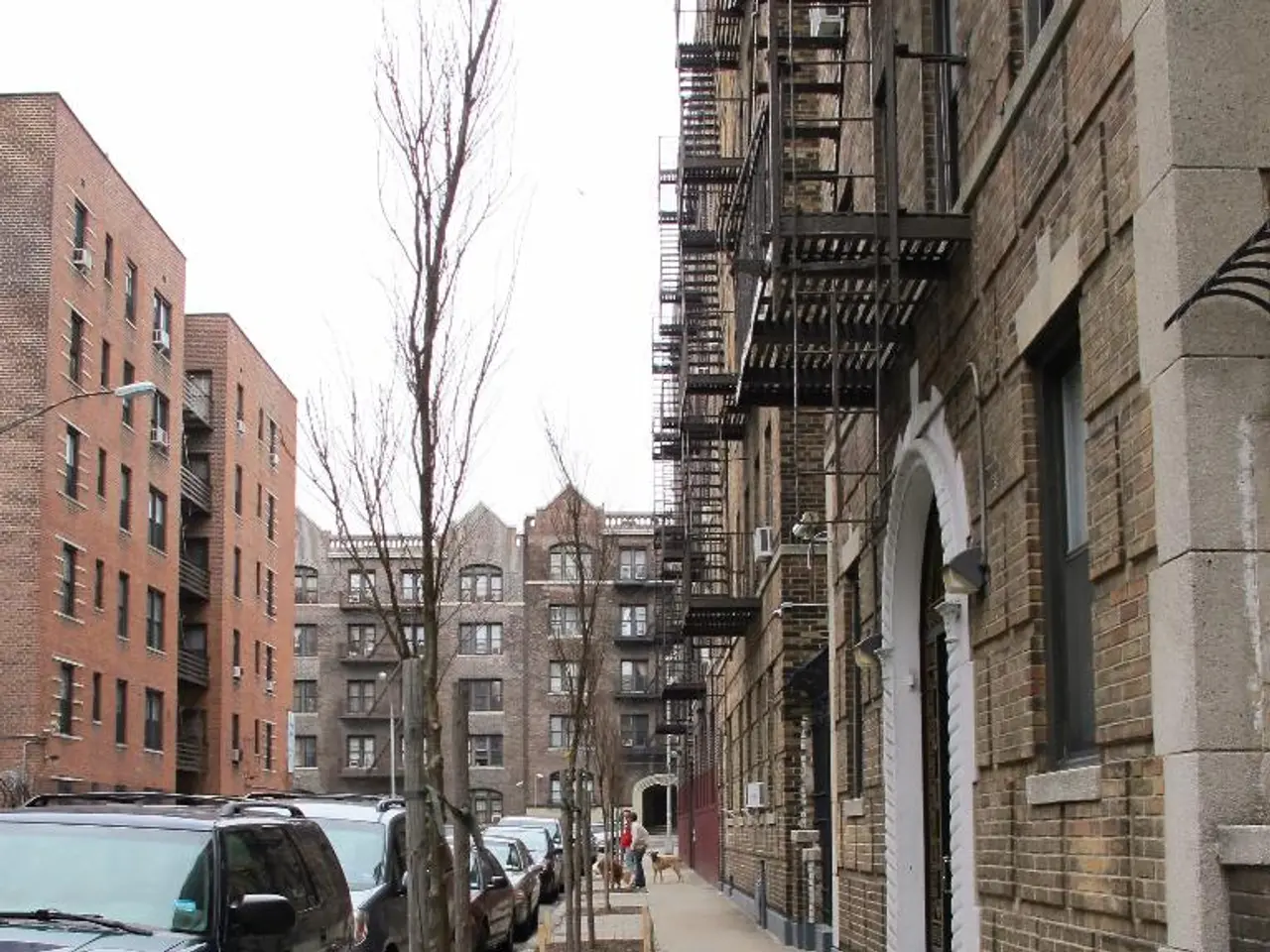Announcement of measures for short-term rentals to safeguard local neighborhoods
In an effort to address housing shortages and anti-social behaviour, the British government has announced new regulations for short-term rentals (STRs) in England. These changes aim to create a more regulated environment for STRs, particularly for whole-home rentals.
Planning Permission Requirement
Starting now, entire-home STRs in areas like London are limited to 90 nights per calendar year without planning permission. Beyond this limit, hosts must either prove the property is their main residence or secure a formal change-of-use/planning permission to let for more nights. Local councils are actively enforcing these rules through monitoring platforms and imposing fines for breaches, which can be substantial, reaching up to £30,000.
Mandatory National Register
From 2025, England plans to introduce a national short-term let register to enhance the monitoring and enforcement of STR regulations uniformly across the country. This registration scheme aims to better understand and control the impact of STRs on housing availability and community wellbeing.
Changes for Homeowners
Besides planning constraints, homeowners renting out properties on a short-term basis will face tighter licensing and registration requirements designed to improve safety, reduce anti-social behaviour, and protect housing stock. These changes mean casual hosts and multiple-property landlords must apply for short-term let licenses or permissions pre-emptively, particularly if operating beyond limited thresholds.
Local Variations and Caps
While London enforces a 90-night cap without planning permission, other English cities like Manchester, Brighton, and Bath are considering tighter regulations, including possible caps or licensing, due to local housing pressures.
Additional Context on Tax and Use
Although primarily administrative controls are emphasized, related tax rule changes (scrapping the furnished holiday letting tax advantage from 2025) and planning conditions like the “10-year rule” in some councils restrict reclassifying holiday lets back to residential use without enforcement action, hinting at a broader tightening of the short-term letting sector.
New 'C5 Short Term Let Use Class'
A new 'C5 short term let use class' is being created in England for STRs not used as a sole or main home. New permitted development rights will allow for the change of use from a 'residential dwellinghouse' to a short term let and vice versa. Existing dedicated short-term lets will automatically be reclassified into the new use class and will not require a planning application.
Simon Barry, Director of Boyer, has stated that many people who let their properties via Airbnb or similar platforms may be uncertain about meeting new requirements.
These measures will not affect hotels, hostels, or B&Bs. Councils may use new powers to remove permitted development rights via an Article 4 Direction if they deem there to be an issue with short-term lets in a very small geographical area. Councils will also be able to control short-term lets by making them subject to the planning process.
These changes are expected to affect around 450,000 short lets in the UK, with hundreds of thousands of landlords potentially being impacted. Proposals will give communities greater control over future growth. The decision to allow for homeowners to rent out their properties for up to 90 nights a year benefits the economy by bringing tourists into the country.
Read also:
- United States tariffs pose a threat to India, necessitating the recruitment of adept negotiators or strategists, similar to those who had influenced Trump's decisions.
- Weekly happenings in the German Federal Parliament (Bundestag)
- Southwest region's most popular posts, accompanied by an inquiry:
- Discussion between Putin and Trump in Alaska could potentially overshadow Ukraine's concerns








